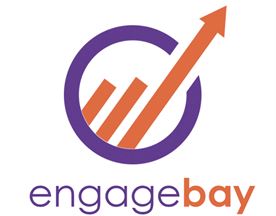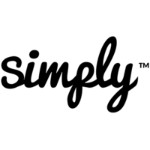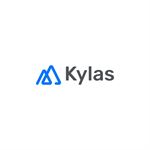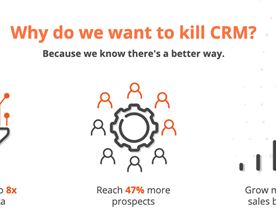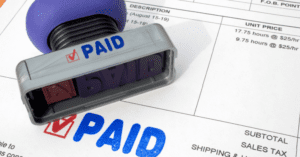Are you trying to decide between Zoho vs HubSpot for your business? It’s a tough choice – both platforms offer a range of tools for marketing, sales, customer service, and more. But which one is the best fit for your company? In this comparison blog post, we’ll break down the similarities and differences between Zoho and HubSpot, as well as their specific features and capabilities. By the end, you’ll have a clear understanding of which platform is the right choice for your business. So if you’re ready to make an informed decision, read on!
Key Features Zoho & Hubspot Offer
- Marketing automation: Both Zoho and HubSpot offer tools for automating marketing tasks such as email campaigns, social media posts, and ad targeting. This can help businesses save time and improve their marketing efforts.
- Lead generation and management: Both platforms offer tools for generating and managing leads, including forms, landing pages, and CRM capabilities. This can help businesses identify and nurture potential customers.
- Email marketing: Both Zoho and HubSpot offer email marketing tools, including templates, automation, and list management. This can help businesses reach out to customers and prospects with targeted, personalized messages.
- Social media management: Both platforms offer tools for managing social media accounts, including scheduling posts, analyzing performance, and engaging with followers. This can help businesses build and maintain a presence on social media platforms.
- CRM: Both Zoho and HubSpot offer CRM tools for managing customer relationships, including contact management, sales forecasting, and customer segmentation. This can help businesses better understand and serve their customers.
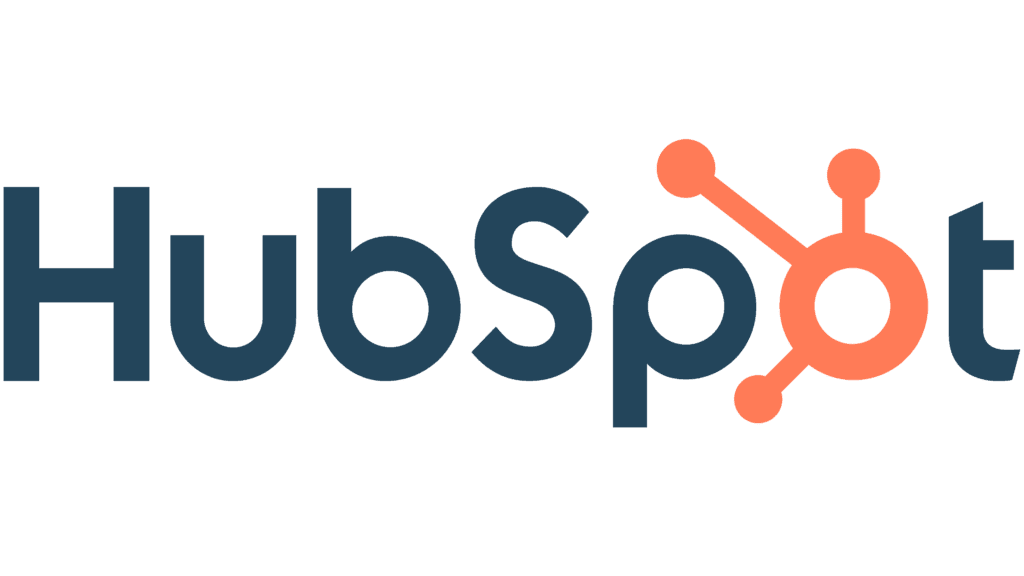
Hubspot
HubSpot is an all-in-one business software platform that provides a range of tools for marketing, sales, customer service, and more. It is designed to help businesses attract, engage, and delight customers by providing a seamless experience across all channels.
Key features offered by HubSpot include:
- Marketing automation
- Lead generation and management
- Email marketing
- Social media management
- Content management
- Website development and optimization
Hubspot Pricing
HubSpot offers a range of pricing plans to accommodate businesses of different sizes and needs. The pricing for its various products and features is based on the number of contacts in your database and the features and tools you need.
HubSpot’s free plan includes a range of basic features and tools for marketing, sales, and customer service, including a CRM, lead capture forms, live chat, and email marketing.
Paid plans start at $50 per month and include additional features and tools, such as marketing automation, lead routing and assignment, and advanced reporting.
HubSpot also offers enterprise-level pricing for larger organizations with more advanced needs. Enterprise plans are customized based on the specific needs of the organization and typically include a higher level of support and additional features and tools.
Remember to evaluate your business’s needs and budget when deciding which pricing plan is the best fit. HubSpot offers a free trial for its paid plans, which allows you to try out the platform and its features before committing to a paid plan.
Hubspot Pros & Cons
HubSpot Pros:
- Comprehensive feature set: HubSpot offers a wide range of tools for marketing, sales, and customer service, making it a versatile platform for businesses of all sizes.
- Intuitive user interface: HubSpot’s tools are designed to be easy to use, with a clean and intuitive interface. This makes it easier for businesses to get up and running quickly with the platform.
- Strong customer support: HubSpot is known for its excellent customer support, with a range of resources available to help users get the most out of the platform. This includes a comprehensive knowledge base, live chat and phone support, and a large community of users.
HubSpot Cons:
- Higher pricing: HubSpot’s paid plans start at $50 per month, which may be more expensive than some other business software options.
- More focused on marketing and sales: While HubSpot does offer a range of tools for different business functions, it is primarily geared towards marketing and sales. This may not be the best fit for businesses that are primarily focused on other areas, such as finance or HR.
- Limited integrations: While HubSpot does offer a number of integrations with other software tools, the selection is somewhat limited compared to some other platforms.
Hubspot Customers
There are many well-known brands that use HubSpot to power their marketing and sales efforts. Some examples include:
- HubSpot itself is a leading provider of inbound marketing and sales software.
- Salesforce, a customer relationship management software company, uses HubSpot to drive its own marketing efforts.
- Moz, a leader in the search engine optimization industry, uses HubSpot to manage its marketing.
- General Electric, a multinational conglomerate, uses HubSpot to power its digital marketing.
- Adobe, a software company, uses HubSpot to drive its marketing.
- Dell, a computer technology company, uses HubSpot to power its inbound marketing.
- eBay, an e-commerce platform, uses HubSpot to drive its marketing efforts.
- National Geographic, a media and entertainment company, uses HubSpot to manage its marketing and sales.
- Airbnb, a vacation rental company, uses HubSpot to manage its marketing and sales.
Hubspot Frequently Asked Questions (FAQ)
- What is HubSpot?
HubSpot is an all-in-one business software platform that offers a range of tools for marketing, sales, and customer service. It is designed to help businesses attract, engage, and delight customers. - What types of tools does HubSpot offer?
HubSpot offers a wide range of tools for marketing, sales, and customer service, including marketing automation, lead generation and management, email marketing, social media management, customer relationship management (CRM), and live chat. - Is HubSpot only for small businesses?
No, HubSpot is suitable for businesses of all sizes. It offers a range of pricing plans to accommodate businesses of different sizes and needs, including a free plan and paid plans starting at $50 per month. - Does HubSpot offer integrations with other software tools?
Yes, HubSpot offers a large number of integrations with other software tools, allowing businesses to customize their setup and workflows. - What is the user interface like for HubSpot’s tools?
Many users find the interface for HubSpot’s tools to be user-friendly and intuitive. The platform is known for its modern and clean design. - Does HubSpot offer good customer support?
HubSpot is known for its excellent customer support, with a range of resources available to help users get the most out of the platform. This includes a knowledge base, phone support, email support, and live chat support. - Is HubSpot easy to learn and use?
The ease of learning and using HubSpot may vary depending on the specific tools and features you are using and your previous experience with business software. However, many users find HubSpot to be easy to learn and use, thanks to its intuitive interface and extensive resources for learning and support. - How does the pricing of HubSpot compare to other business software platforms?
HubSpot’s pricing is generally competitive with other business software platforms. It offers a free plan and paid plans starting at $50 per month. - How reliable is HubSpot?
HubSpot has a good reputation for reliability, with minimal reported downtime. However, as with any software platform, there is always a risk of unexpected issues or outages. - Does HubSpot offer a mobile app?
Yes, HubSpot offers a mobile app for both iOS and Android devices, which allows users to access their HubSpot tools on the go. The mobile app includes a range of features and tools, depending on the specific HubSpot product you are using.
Is Hubspot Right for Your Business?
Here are a few types of businesses that would particularly benefit from using HubSpot:
- Businesses focused on marketing and sales: HubSpot’s emphasis on marketing and sales tools make it a particularly good fit for businesses that are primarily focused on these areas.
- Businesses with a large customer base: HubSpot’s customer service tools, such as live chat and knowledge management, can be particularly helpful for businesses with a large customer base that need to manage a high volume of customer interactions.
- Businesses that value customer support: HubSpot is known for its excellent customer support, with a range of resources available to help users get the most out of the platform. This could make it a good fit for businesses that value strong customer support.

Zoho
Zoho is an all-in-one business software platform that offers a range of tools for marketing, sales, customer service, finance, and more. It is designed to help businesses streamline their operations and improve efficiency.
Key features offered by Zoho include:
- Marketing automation
- Lead generation and management
- Email marketing
- Social media management
- Project management
- HR management
- Financial management
Zoho Pricing
Zoho Pros & Cons
Zoho offers a range of pricing plans to accommodate businesses of different sizes and needs. The pricing for its various products and features is based on the number of users and the features and tools you need.
Zoho’s free plan includes a range of basic features and tools for marketing, sales, and customer service, including a CRM, lead capture forms, live chat, and email marketing.
Paid plans start at $8 per user per month and include additional features and tools, such as marketing automation, lead routing and assignment, and advanced reporting.
Zoho also offers enterprise-level pricing for larger organizations with more advanced needs. Enterprise plans are customized based on the specific needs of the organization and typically include a higher level of support and additional features and tools.
It is important to carefully evaluate your business’s needs and budget when deciding which pricing plan is the best fit. Zoho offers a free trial for its paid plans, which allows you to try out the platform and its features before committing to a paid plan.
Zoho Pros:
- Affordable pricing: Zoho offers a free plan and paid plans starting at $8 per user per month, making it more affordable than some other business software options.
- Wide range of features: Zoho offers a wide range of tools for different business functions, including marketing, sales, customer service, finance, and more. This makes it a versatile platform for businesses of all sizes.
- Large number of integrations: Zoho has a large number of integrations with other software tools, allowing businesses to customize their setup and workflows.
Zoho Cons:
- User interface may be less intuitive: Some users may find that the interface for some of Zoho’s tools is not as intuitive as other platforms. This can make it harder for new users to get up and running quickly with the platform.
- Customer support may not be as comprehensive: While Zoho does offer customer support, it may not be as comprehensive as some other platforms. For example, it may not offer live chat support or as many resources in its knowledge base.
- Some features may be lacking: While Zoho offers a wide range of features, some users may find that certain tools are not as robust as those offered by other platforms.
Zoho Customer Examples
There are many well-known brands that use Zoho to power their business operations. Some examples include:
- Zoho itself is a leading provider of business software.
- In-N-Out Burger, a popular fast food chain, uses Zoho to manage its finances and HR.
- Virgin Media, a telecommunications company, uses Zoho to manage its customer service operations.
- Aravind Eye Hospital, a leading eye care provider in India, uses Zoho to manage its finances and HR.
- Zola, an online wedding registry company, uses Zoho to manage its marketing and sales efforts.
- Bose, a manufacturer of audio equipment, uses Zoho to manage its customer service.
- DHL, a global logistics company, uses Zoho to manage its HR.
- UNICEF, a humanitarian organization, uses Zoho to manage its finances and HR.
- FreshBooks, an invoicing and accounting software company, uses Zoho to manage its customer service.
- Trivago, a travel search website, uses Zoho to manage its customer service.
- Red Bull, an energy drink company, uses Zoho to manage its customer service.
Zoho Frequently Asked Questions (FAQ)
- What is Zoho?
Zoho is an all-in-one business software platform that offers a range of tools for marketing, sales, customer service, finance, and more. It is designed to help businesses streamline their operations and improve efficiency. - What types of tools does Zoho offer? Zoho offers a wide range of tools for different business functions, including marketing automation, lead generation and management, email marketing, social media management, project management, HR management, and financial management.
- Is Zoho only for small businesses?
No, Zoho is suitable for businesses of all sizes. It offers a range of pricing plans to accommodate businesses of different sizes and needs, including a free plan and paid plans starting at $8 per user per month. - Does Zoho offer integrations with other software tools?
Yes, Zoho offers a large number of integrations with other software tools, allowing businesses to customize their setup and workflows. - What is the user interface like for Zoho’s tools?
Some users may find that the interface for some of Zoho’s tools is not as intuitive as other platforms. However, many users find the interface easy to use and find the learning curve to be manageable. - Does Zoho offer good customer support?
Zoho does offer customer support, but it may not be as comprehensive as some other platforms. It offers a knowledge base and phone support, but does not offer live chat support. - Is Zoho easy to learn and use?
The ease of learning and using Zoho may vary depending on the specific tools and features you are using and your previous experience with business software. Some users find it easy to learn and use, while others may find the learning curve to be steeper. - How does the pricing of Zoho compare to other business software platforms?
Zoho’s pricing is generally more affordable than some other business software platforms. It offers a free plan and paid plans starting at $8 per user per month. - How reliable is Zoho?
Zoho has a good reputation for reliability, with minimal reported downtime. However, as with any software platform, there is always a risk of unexpected issues or outages. - Does Zoho offer a mobile app?
Yes, Zoho offers a mobile app for both iOS and Android devices, which allows users to access their Zoho tools on the go. The mobile app includes a range of features and tools, depending on the specific Zoho product you are using.
Is Zoho Right for Your Business?
Here are a few types of businesses that could benefit from using Zoho:
- Small businesses: Zoho’s affordable pricing and wide range of features make it a good fit for small businesses that need an all-in-one solution to manage multiple aspects of their operations.
- Businesses with limited IT resources: Zoho’s all-in-one approach can help businesses streamline their operations and improve efficiency, which can be especially helpful for businesses with limited IT resources.
- Businesses that rely on integrations: Zoho has a large number of integrations with other software tools, which could make it a good fit for businesses that rely heavily on integrations to customize their setup and workflows.
Zoho or HubSpot: Wrapping up the comparison
Both Zoho and HubSpot are comprehensive business software platforms that offer a range of tools for different business functions. While they have many similarities, there are also some key differences to consider when deciding which platform is the best fit for your business.
Here’s a quick recap on what you’ve learned:
- Pricing: Zoho’s pricing is generally more affordable than HubSpot’s, with a free plan and paid plans starting at $8 per user per month. HubSpot offers a free plan and paid plans starting at $50 per month.
- Features: Both Zoho and HubSpot offer a wide range of tools and features, but the specific tools and features available may vary between the two platforms. It is important to carefully evaluate the features that are most important to your business and compare them between the two platforms.
- User experience: Some users may find the interface for Zoho’s tools to be less intuitive than HubSpot’s, but this may vary depending on the specific tools and features you are using and your personal preference.
- Customer support: HubSpot is known for its excellent customer support, with a range of resources available to help users get the most out of the platform, including a knowledge base, phone support, email support, and live chat support. Zoho offers a knowledge base and phone support, but does not offer live chat support.
- Integration with other software tools: Both Zoho and HubSpot offer a large number of integrations with other software tools, allowing businesses to customize their setup and workflows.
If you haven’t finalised your software decision, using our software marketplace can be helpful when making the right choice . We provide an overview of all the different software options available and allow you to compare their features and pricing. This can save you time and effort in your research process and help you make an informed decision about which software is the best fit for your business.
Serchen provides detailed user reviews and ratings, which can give you a sense of the real-world experience of other businesses using the software
Good luck finding the right platform for your business!





